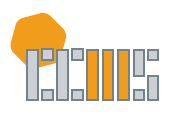Abstract / Synopsis
This quantitative study examined the notion of mathematical creativity and its relationship to epistemological beliefs of the nature of mathematics and mathematical anxiety. A counterbalanced design was employed, randomizing a class of elementary pre-service teachers into two groups and giving a pre- and post-test to determine if significant differences exist in the participants who are exposed to problem posing, divergent thought, and invented strategies, that is, a punctuated, intentional experience with mathematical creativity. This difference in mathematical anxiety, beliefs, and creativity was also gauged using repeated measures during the study. Furthermore, beliefs and anxiety were correlated with mathematical creativity employing pre- and post-test measures. The findings of this study suggest that mathematical creativity can be fostered and sustained under certain conditions. Also, the results indicated that mathematical beliefs and anxiety are significantly impacted by intentional experiences with mathematical creativity – alternative algorithms, divergent thought, invented strategies, and problem posing.
DOI
10.5642/jhummath.202002.07
Recommended Citation
James M. Fetterly, "Fostering Mathematical Creativity While Impacting Beliefs and Anxiety in Mathematics," Journal of Humanistic Mathematics, Volume 10 Issue 2 (July 2020), pages 102-128. DOI: 10.5642/jhummath.202002.07. Available at: https://scholarship.claremont.edu/jhm/vol10/iss2/7
